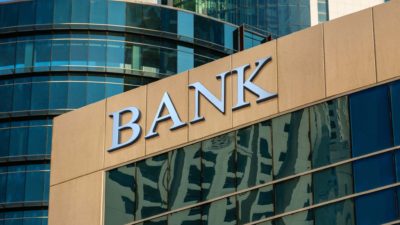After hitting a new record high this morning, the S&P/ASX 200 Index (ASX: XJO) has swung back to a loss at the time of writing. At present, the ASX 200 is nursing a hit of 0.07%, leaving the index at 7,740 points. That's after hitting the new all-time high of 7.769.1 points earlier today. But let's talk about the Commonwealth Bank of Australia (ASX: CBA) share price.
Just like the ASX 200, this Monday has seen the CBA share price hit a fresh new all-time high. In this ASX 200 bank stock's case, the new record stands at $118.55 a share.
At present, CBA shares have cooled off a little, but are still up 0.52% for the day at $117.97 a share.
At this new share price, CBA's market capitalisation now stands at a whopping $196.53 billion. By comparison, the next-largest of the big four ASX 200 banks is currently National Australia Bank Ltd (ASX: NAB), which has a market cap of just $105.9 billion.
So CBA is almost twice the size of its nearest banking rival.
CBA shares and a monster market cap
The share price gains of Commonwealth Bank have been eye-catching in recent months. Since the end of October, CBA is now up more than 22.5%. The shares are also up 3.8% over 2024 to date, as well as up 19.65% over the past 12 months.
But many shareholders might be wondering if things have gotten a little too hot for CBA. After all, we've recently covered a flurry of ASX experts who have labelled the CBA share price as expensive and even "difficult to justify".
But today, let's discuss a simple reason why I think CBA shares are too expensive right now.
As most investors would know, there are only two fundamental ways you can achieve a return on your investment with ASX shares. The first is capital growth of the company's share price. The second, dividends (and franking).
CBA shares are incontrovertibly expensive right now, no way around it. They trade on a huge premium compared with any other ASX bank stock (and most other banks around the world), both on a price-to-earnings (P/E) ratio basis, and using book value.
Normally, high P/E ratios and valuations can be potentially justified if a company is growing and has strong prospects for future growth.
But I don't believe we can say that about CBA. The bank's earnings report from last month showed CBA increasing its operating income by 0.2% over the six months to 31 December. Its cash net profit after tax actually fell by 3% to $5.02 billion.
I don't expect a turnaround to consistent, meaningful growth in profits and earnings anytime soon. Nor, as a matter of fact, does CBA itself. In its earnings, CBA CEO Matt Comyn warned investors that "we expect financial strain to continue in 2024".
So for CBA sales to continue to rise going forward, investors will probably need to stretch what they are paying for each dollar of CBA earnings even further from its already exceptional valuation.
That's not something I think anyone should bet on.
Is there anything attractive about this ASX 200 bank stock right now?
That leaves us with CBA's dividends.
ASX banks have a well-earned reputation for paying meaty dividend income. Historically, that has been the case with CBA as well.
But right now, the bank's recent share price surge has left it with a trailing dividend yield of just 3.86% (albeit fully franked). That is rather low for an ASX bank. Especially when you consider that CBA's rivals like Westpac Banking Corp (ASX: WBC) and ANZ Group Holdings Ltd (ASX: ANZ) have current dividend yields of 5.34% and 6.07% respectively.
So put simply, someone buying CBA shares today has to hope that investors will keep increasing the bank's valuation despite stagnant profits and earnings, all while continuing to receive a dividend yield of under 4%.
There's not much in that mix that would benefit any investor. As such, I indeed think that $196.5 billion is too much for CBA shares and potential buyers should look elsewhere.








